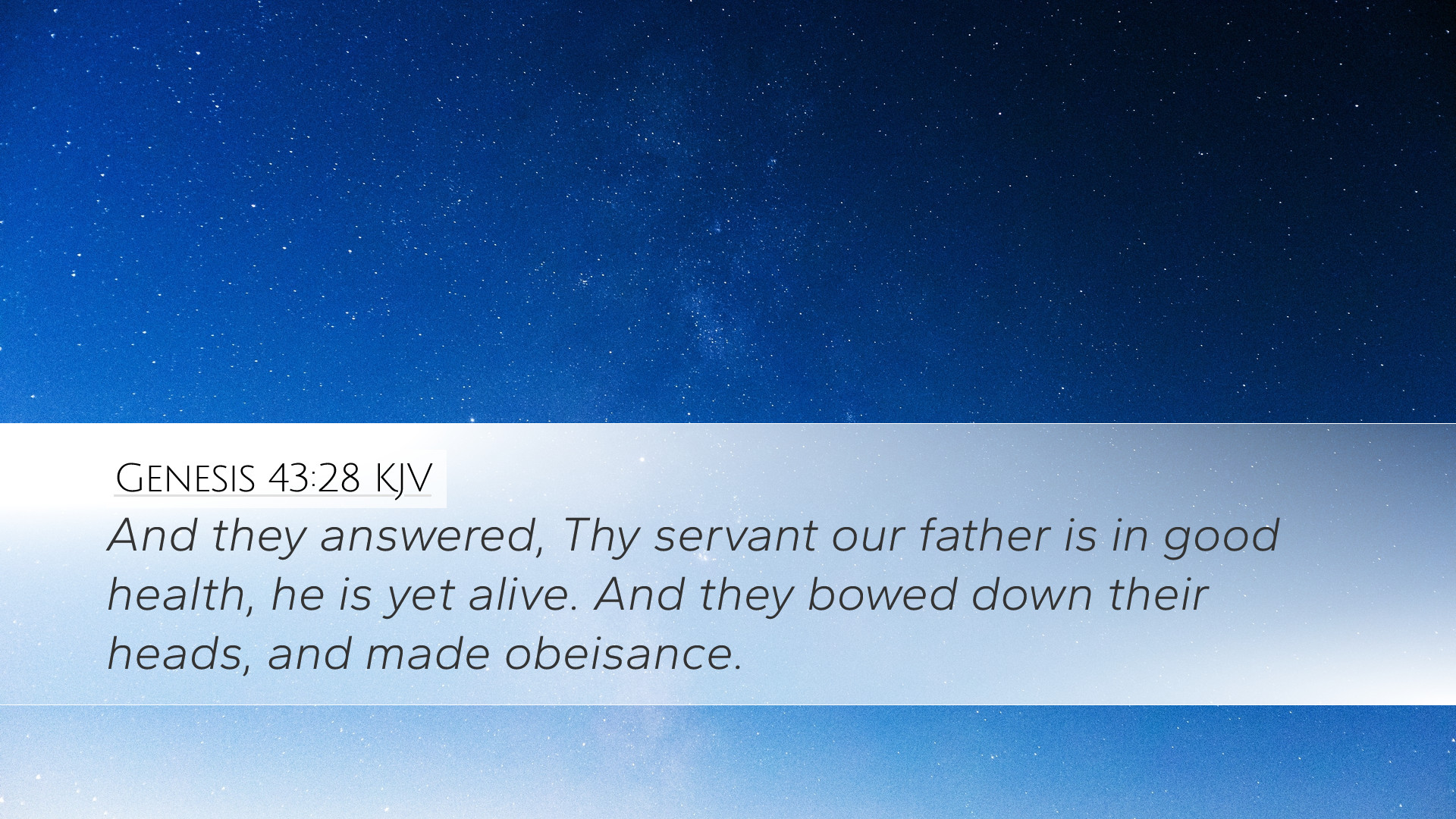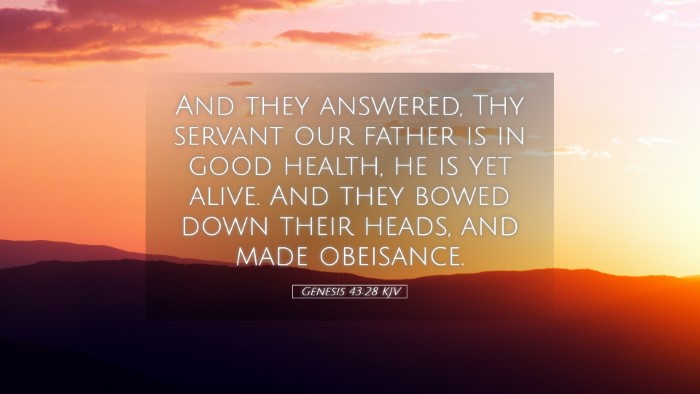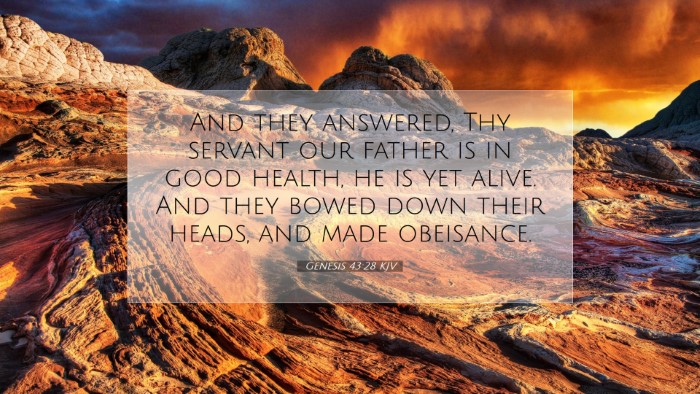Commentary on Genesis 43:28
Verse: "And they answered, Thy servant our father is in good health; he is yet alive. And they bowed down their heads, and made obeisance."
Introduction
This verse occurs in the context of Joseph's interaction with his brothers, who had come to Egypt to seek provisions during a famine. The emotional weight of their family dynamic is palpable in these exchanges. This commentary aims to explore the implications of this verse through various theological lenses, drawing insights from Matthew Henry, Albert Barnes, and Adam Clarke.
Thematic Analysis
Genesis 43:28 highlights themes of reconciliation, family dynamics, and divine providence. As the brothers answer Joseph concerning their father, Jacob, the implications of their statement extend beyond mere information; it reflects their complex emotions and the burdens they carry.
Family Health and Well-Being
Matthew Henry emphasizes the importance of familial relationships within this narrative. The brothers’ declaration about their father’s health is significant as it shows their concern for Jacob, which contrasts sharply with the earlier feelings of guilt and betrayal they experienced after selling Joseph into slavery. It reveals a transformation in their character from self-interest towards a sense of familial duty.
Cultural Context of Bowing
Albert Barnes notes the cultural significance of the act of bowing down ("made obeisance"). In ancient Near Eastern cultures, such actions symbolized respect, submission, and acknowledgment of authority. This act of bowing signifies not only the brothers’ acknowledgment of Joseph's authority as a ruler in Egypt but also hints at an unfolding prophecy regarding Joseph's rise to power and his brothers' recognition of it.
Divine Providence and Irony
Adam Clarke explores the irony surrounding this moment. The very brothers who had plotted against Joseph are now placed in a position where they must plead for sustenance from him. Clarke suggests that this scenario is a testament to God’s providence, turning a tragic past into a redemptive opportunity. Each brother is unwittingly fulfilling a role in the greater narrative of salvation and restoration for their family.
Character Development
Throughout Genesis, the brothers' development is intertwined with Joseph’s own journey. Their response to Jacob’s health indicates a shift from individualistic perspectives towards collective concern for their father's welfare.
Confession and Growth
In Genesis 42, the brothers express guilt and fear due to their previous actions against Joseph. Now, in acknowledging their father's well-being, they're also increasingly exhibiting remorse and responsibility, indicating a transformation in their characters. This notion of moral development offers insight into how personal and communal identity intersects with familial responsibility.
Joseph's Leadership
Joseph’s role as a leader entails more than just managing resources; it includes emotional intelligence and understanding the complexities of familial relationships. His act of listening to his brothers demonstrates a leader's wisdom, as it fosters an environment for healing and reconciliation.
Theological Reflections
This verse calls for reflection on the nature of God’s oversight in human affairs. The narrative encapsulates the idea that God can use the misfortunes and sins of humans for a greater good, leading to eventual redemption.
Hope and Restoration
The acknowledgment of Jacob’s health generates a sense of hope amidst the trials faced by the brothers. God’s providence is ever-present, and this moment signifies the beginning of healing and restoration for the family. Moreover, it serves as a reminder to contemporary believers of God’s capability to bring forth good in dire situations.
Application to Modern Faith
For pastors, students, and theologians, the verse serves as a powerful reminder of the importance of reconciliation in relationships. Just as Joseph navigated his complex emotions towards his brothers, so must modern believers strive for forgiveness and understanding in their own familial and community relationships.
Conclusion
Genesis 43:28 encapsulates significant themes of reconciliation, divine providence, and the evolution of familial relationships amid trials. The commentary by Henry, Barnes, and Clarke offers rich insights into the nature of these dynamics, encouraging believers to reflect on their roles within their families and communities as they strive for unity and support in accordance with God's purposes.


